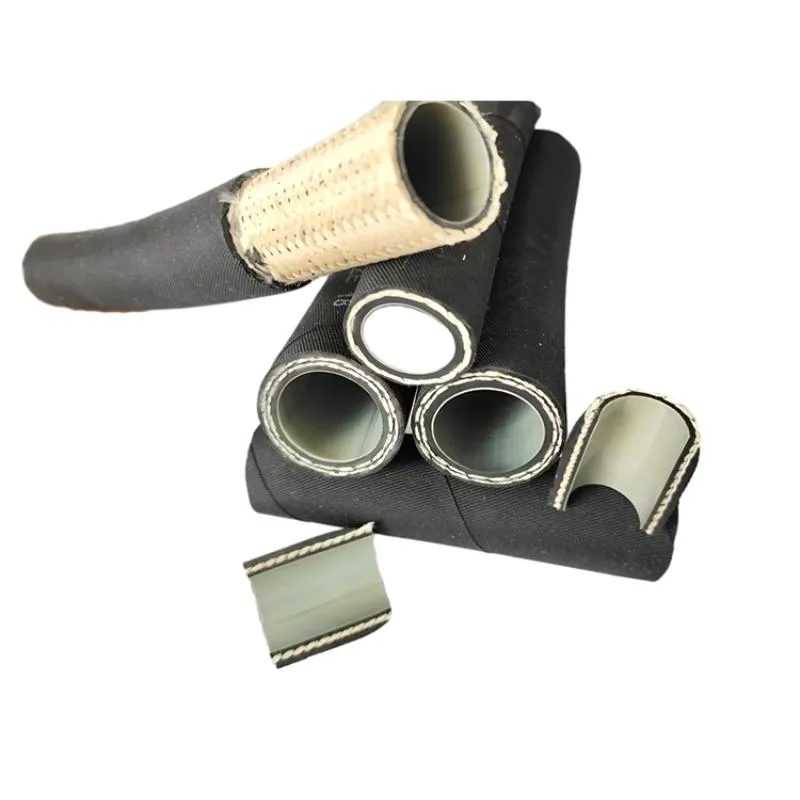hydraulic brake hose
Sep . 01, 2024 12:20 Back to list
hydraulic brake hose
The Importance of Hydraulic Brake Hoses in Automotive Systems
Hydraulic brake hoses play a crucial role in the functioning and safety of automotive braking systems. These hoses are designed to convey hydraulic fluid from the brake master cylinder to the brake calipers, ensuring efficient and reliable braking performance. Understanding the composition, functionality, and maintenance of hydraulic brake hoses is essential for any vehicle owner or automotive enthusiast.
Hydraulic brake hoses are typically made of high-quality synthetic rubber, reinforced with layers of braided steel or synthetic fibers. This construction is essential for withstanding the high pressures generated during braking. When the brake pedal is pressed, hydraulic fluid is forced through the hoses, which expand and allow for the force to be transmitted to the brake calipers. This results in the clamping of the brake pads against the rotors, thereby slowing down or stopping the vehicle.
One of the key benefits of hydraulic brake hoses is their ability to provide consistent braking performance. The hydraulic fluid is incompressible, ensuring that the force applied at the brake pedal is effectively transmitted to the braking components. This responsiveness is vital for safe driving, particularly in emergency situations where rapid deceleration is necessary.
hydraulic brake hose

However, like any automotive component, hydraulic brake hoses are subject to wear and tear over time. Exposure to heat, moisture, and road debris can lead to deterioration, which may result in leaks or bursts. Regular inspection and maintenance are crucial to ensure the integrity of the hoses. Signs of wear, such as cracking, swelling, or discoloration, should be addressed immediately to prevent brake failure.
Replacing hydraulic brake hoses is a relatively straightforward process that can typically be performed by a skilled mechanic. It involves removing the old hoses, checking the brake lines for any damage, and installing new hoses that meet or exceed the manufacturer’s specifications. It’s recommended to replace brake hoses every four to six years, or sooner if any signs of damage are present.
In conclusion, hydraulic brake hoses are vital components of any vehicle’s braking system, enabling safe and effective stopping power. By understanding their function and importance, vehicle owners can take proactive measures to maintain their braking systems. Regular inspections and timely replacements not only enhance the longevity of the hoses but also contribute to the overall safety of the vehicle, ensuring peace of mind on the road. Investing in quality hydraulic brake hoses and adhering to maintenance schedules can make a significant difference in driving safety.
Latest news
-
Air Conditioning Charging Hose: Durable AC Recharge Kits
NewsAug.22,2025
-
Premium 4890 AC Hose | Durable & Perfect Fit Replacement
NewsAug.21,2025
-
High-Quality AC Hose: Compressor to Evaporator for Car
NewsAug.19,2025
-
Glass Storage Jar with Acacia Vacuum Vented Cover - HEBEI KEMO|Thermal Resistance, Food-Grade Safety, Eco-Friendly
NewsAug.18,2025
-
Glass Storage Jar with Acacia Lid - Hebei Kemao | Heat-Resistant, Eco-Friendly
NewsAug.18,2025
-
Glass Storage Jar with Acacia Vacuum Vented Cover - HEBEI KEMO|Thermal Resistance,Eco-Friendly Storage
NewsAug.18,2025
